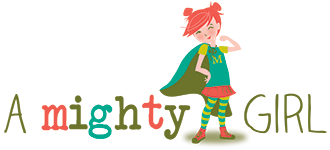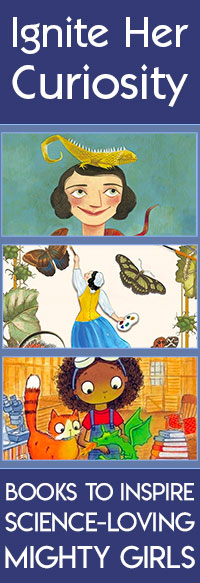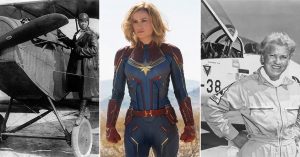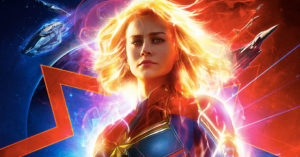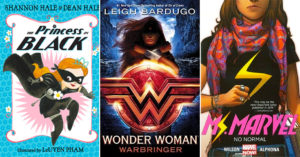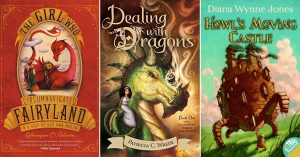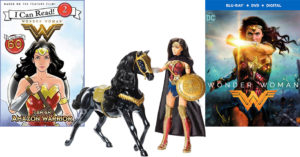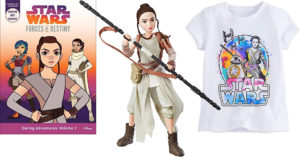With Captain Marvel, Anna Boden has become the first woman to direct a live-action movie that grossed over $1 billion.
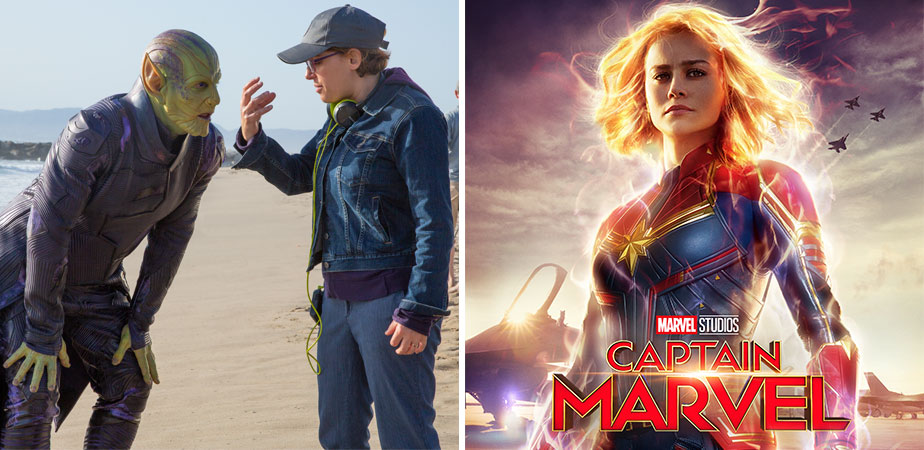 Marvel Studios' Captain Marvel has soared to blockbuster success, becoming the first female-led superhero film to pass $1 billion at the box office! It has also made history as the first Marvel Cinematic Universe movie to feature a female solo lead. While the film's themes of perseverance and discovering your own power have spoken to a wide audience, this lead character is particularly meaningful for girls and women, who rarely see themselves as the heroic lead of a superhero film.
Marvel Studios' Captain Marvel has soared to blockbuster success, becoming the first female-led superhero film to pass $1 billion at the box office! It has also made history as the first Marvel Cinematic Universe movie to feature a female solo lead. While the film's themes of perseverance and discovering your own power have spoken to a wide audience, this lead character is particularly meaningful for girls and women, who rarely see themselves as the heroic lead of a superhero film.
The film also marks a first behind the camera: co-director Anna Boden has become the first woman to direct a live-action movie that grossed over $1 billion. Boden, who is originally from Massachusetts and developed a love of film at a young age, studied film at New York University's Tisch School of the Arts. She met her co-director, Ryan Fleck, on the set of a student production there, and the two have collaborated on multiple acclaimed projects, including feature films Half Nelson, Sugar, It's Kind Of A Funny Story, and Mississippi Grind.
This week, A Mighty Girl spoke with Anna Boden about her vision for Captain Marvel, why representation in filmmaking matters, and her next Mighty Girl movie plans. And, for those who haven't seen Captain Marvel — or for Mighty Girls who loved it and can't wait to see it again — you can get it now on Digital and Blu-ray!
Our Conversation with Director Anna Boden
A Mighty Girl: One of the things that a lot of the people in our community really loved about the film was its focus on embracing your own power rather than having power be granted externally. What inspired you to choose this approach for Captain Marvel's origin story?
Anna Boden: That was something that was really important to us too. I don't know exactly what sparked it, just knowing that we wanted her to be active in her own origin of getting power. What Marvel is so amazing at is saying "Here are the comics; we all love them, we're all inspired by them, the characters are amazing, but do we need to stay true to every little detail of the history of this origin story from the late 1960s? No. How can we reinvent it and make it feel appropriate for today." We really wanted her to be the reason that she becomes powerful.
Throughout the film, she's been told by various people in her past "you're not strong enough, you're not good enough, you ought to be different than how you are." She comes to realize that embracing and accepting herself gives her true power.
And even more than that, not just her choice — that she raises that gun and sacrifices herself and has the energy absorbed into her body — but also her journey to understand that her power came from before she got that burst of energy... it was from who she is as a person, and from her strength and her grit and her determination. Throughout the film, she's been told by various people in her past "you're not strong enough, you're not good enough, you ought to be different than how you are." She comes to realize that embracing and accepting herself gives her true power.
That was just something from the very beginning that was really important to us and to Brie [Larson] in our conversation about who this character is. We kind of created this idea of a character who thinks that she's being granted the power from the Supreme Intelligence and from Yon-Rogg, from the Kree, but then realizes that they've actually just been controlling her and holding her back.
Our community is largely made up of parents, typically mothers and educators. We ran a story right after Captain Marvel came out and a lot of people had already gone to see it over the weekend. Many people commented on how thrilled they were about the fact that there wasn't a romantic subplot, since this is usually such a central element in films starring women. Was this a decision from the onset or did that just naturally develop?
We didn't take some kind of firm stance like "There will be no romance in this movie" at the beginning. But as we were exploring the character and exploring what the story was really about, it was about her humanity and, ultimately, her friendships. Not just her buddy friendship that she makes with Nick Fury over the course of the journey but that key, essential friendship with Maria Rambeau from her past that helps link her to her own humanity. And even her friendship with Talos, the Skrull leader, which is a surprising friendship, as she kind of recognizes the humanity in him as well. There was no room for romance. That wasn't the point. The point was about her connection to these friendships. That felt like a more true story to tell for this character.
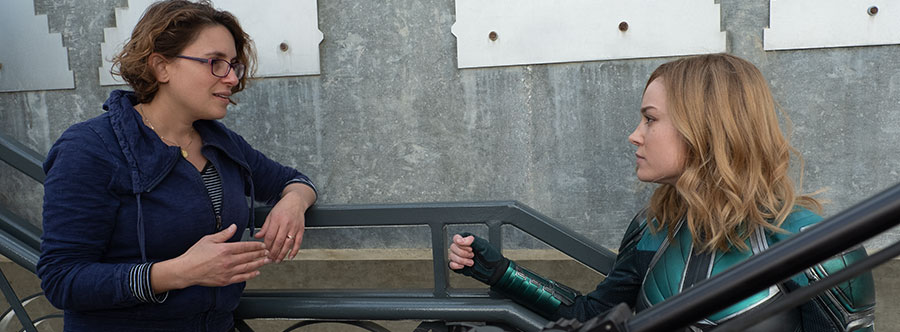 The other element that got a lot of comments was the "standing up scene," the montage of her getting up at various points throughout her life after falling down or getting knocked down. Many people said that it made a big impact on them and that they found it very moving. How did that scene come to be?
The other element that got a lot of comments was the "standing up scene," the montage of her getting up at various points throughout her life after falling down or getting knocked down. Many people said that it made a big impact on them and that they found it very moving. How did that scene come to be?
It came out of the writing. We knew that this moment was when she recognized her true power. Look, Captain Marvel is special: she got blasted by this hugely powerful energy blast made of tesseract power and she got special powers. She can shoot photons from her fists; we can't all do that. But we also wanted to connect that to what we can all do, and what she always did before she got those powers. What she always did as a human.
And I think it's something we can all relate to, particularly women, is being told "you're not 'blank' enough, you don't belong, you're not strong enough. If you want to succeed, you have to be something different from who you are, you need to control your emotions." All these ways that you're being told not to accept yourself, and then for her to have gotten knocked down all those times — and being told all those things over the course of her life — and then to find in this moment the strength to reject that and to embrace herself and to see what was always powerful about herself, that's where that scene came from. It was a really key moment in the script from early on that we kept kind of building around.
Our community is focused on empowering girls, and there's been a lot of attention on how Captain Marvel was the first billion dollar female-led and directed superhero film. Could you speak to the importance of why female focused films matter, and why this type of representation matters to the Mighty Girls we're serving in our community?
I'll say what it means to me. My son is four years old, and last year he dressed up as Captain Marvel for Halloween. And that meant so much to me, that he saw this superhero that was just as equal to any other superhero, and it was his favorite superhero. It didn't matter that she was a girl, or a boy, or whatever, that was his favorite superhero and that was what he was going to dress up as. I didn't grow up with that.
I don't want there to be the one superhero female movie or the two superhero female movies that have to do everything for all of us. I want there to be so many so that all of these different female experiences become part of our representation and part of the people who we see on screen every day.
So the idea of having more and more of these women being at the center of films like this, so our kids aren't playing with nine superhero action figures and then one of them is maybe a woman, but we get to see ourselves represented as half of those. So that it doesn't become the anomaly that we have this female-led superhero movie and these strong female protagonists. Get more and more of them, so that they can represent all different things, and kind of be part of representing the diversity of the female experience so that they don't all have to represent it all.
I don't want there to be the one superhero female movie or the two superhero female movies that have to do everything for all of us. I want there to be so many so that all of these different female experiences become part of our representation and part of the people who we see on screen every day. I want that for our kids.
Captain Marvel is the first female superhero movie to make $1 billion; it's also the first time a woman has directed a live-action $1 billion movie. How did you react to knowing you had broken both of those records?
I am just so thrilled that Captain Marvel reached so many people and that we got to introduce Carol Danvers to women all over the world. We were particularly excited to see how much the global audience embraced Carol. Going to Singapore to do press was a hugely meaningful experience — to watch women from all over Asia react to this powerful female character, and see firsthand what she meant to the fans.
Female directors are still badly underrepresented. What has it been like for you as a woman behind the camera, and do you feel like things are changing with the increased awareness of the importance of representation in all areas of the film industry?
I certainly hope things are changing! We have seen a huge push recently to have more diverse representation in front of and behind the camera. I feel the energy of that palpably, but at the same time I'm aware that we have to keep struggling for more representation and in more roles. Composers, editors, cinematographers... the list goes on... We need to do better.
 What are your own plans to go "higher, further, faster" as a director, with Captain Marvel or in other work?
What are your own plans to go "higher, further, faster" as a director, with Captain Marvel or in other work?
Ryan and I are directing for a mini-series starring Cate Blanchett that very much continues the theme of exploring powerful female characters — though in a much more grounded way. It's called Mrs. America and we start shooting very soon!
Thank you for your time, Anna, and for the brilliant film! Every year, we put up a Halloween Gallery where we usually have around a thousand photos submitted of Mighty Girls in costumes, and every year we see themes emerge around popular characters. We have no doubt that this will be the year of Captain Marvel so thank you!
I hope so! And thank you!
This blog post in sponsored by Disney Home Entertainment. All opinions and ideas are entirely those of A Mighty Girl.
